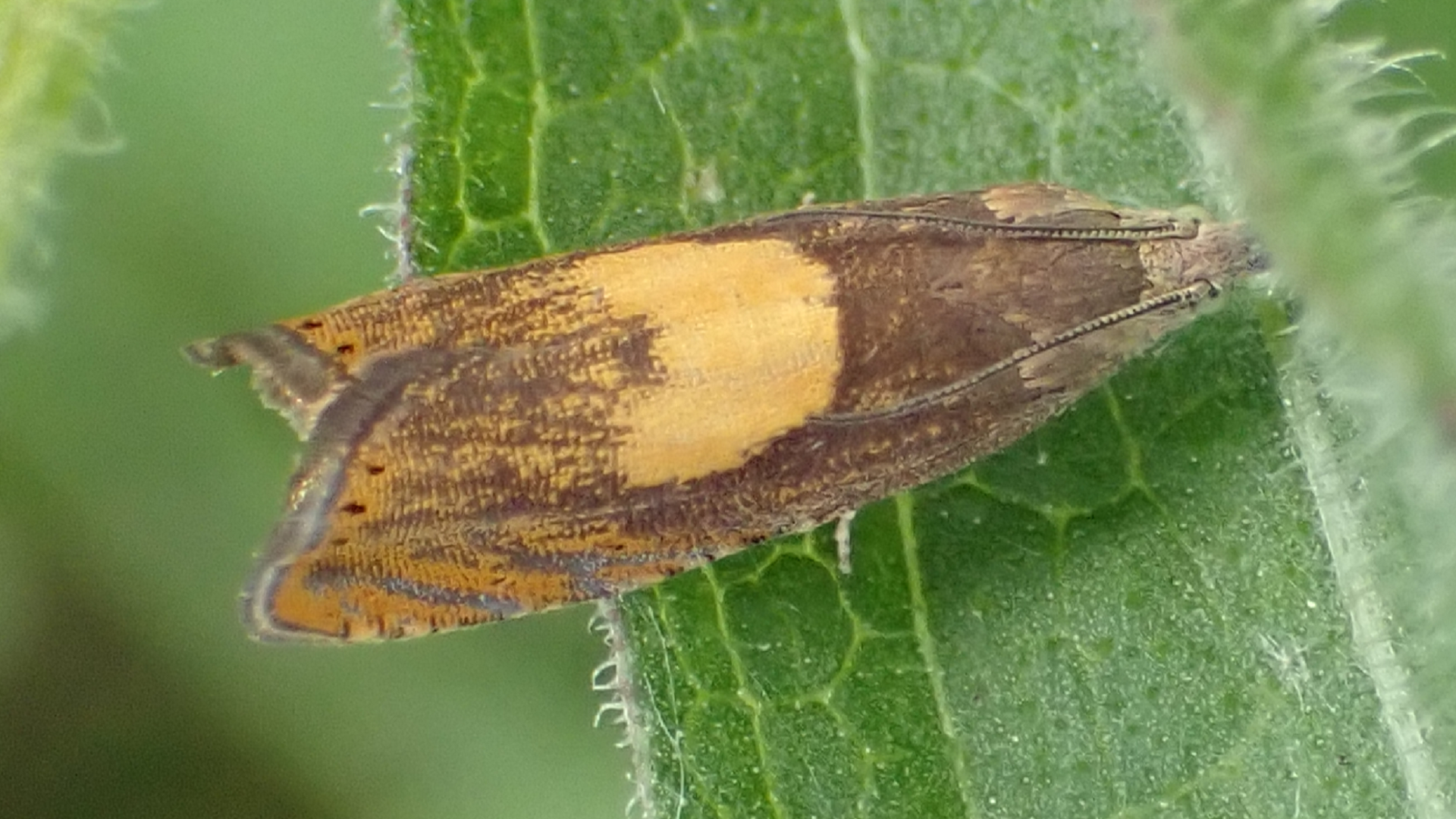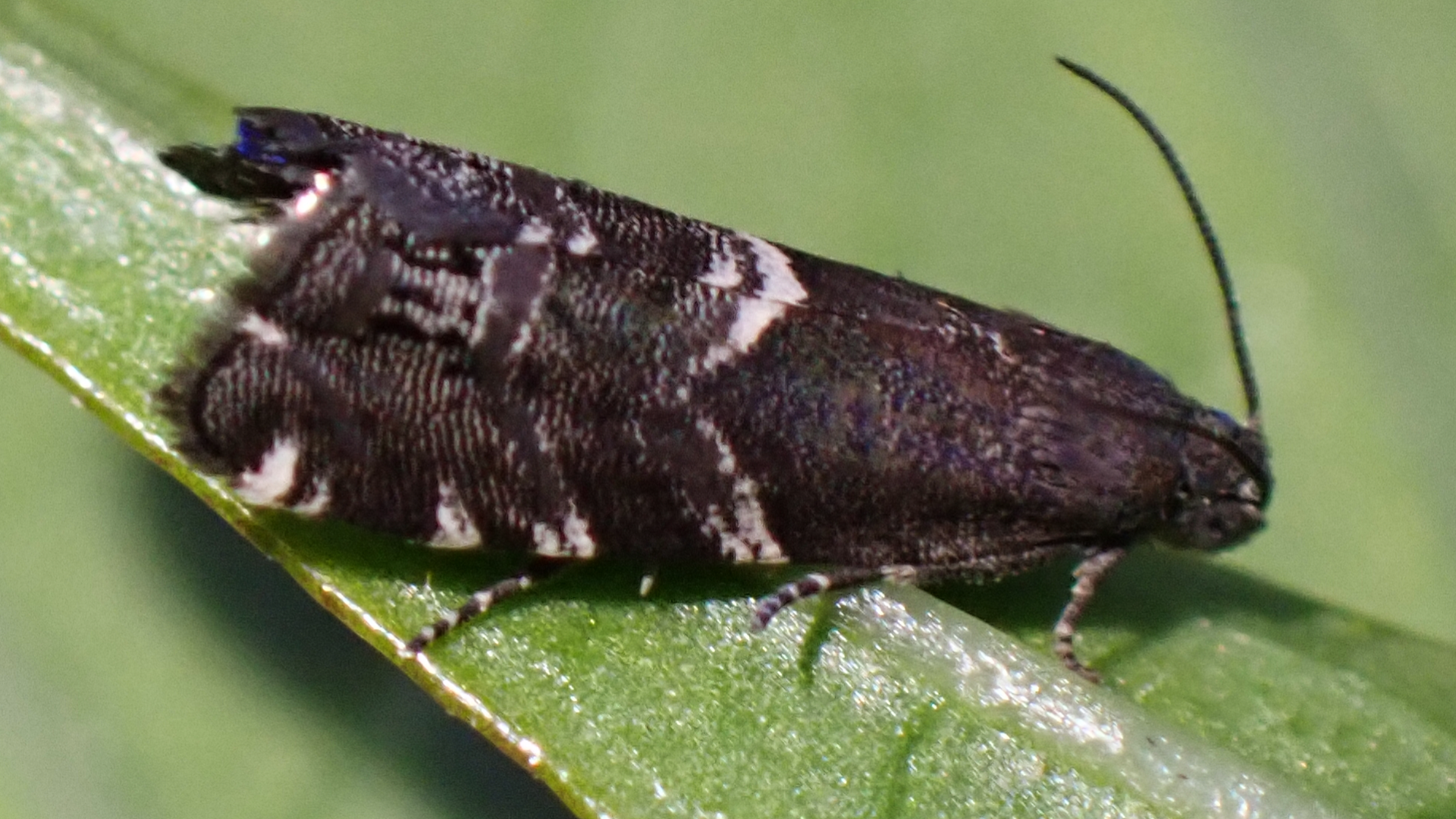Moths are a group of insects that includes all members of the order Lepidoptera that are not butterflies. They are an important part of the food chain providing a vital food source for birds and bats.
49.203
Aspen Hook-wing Ancylis laetana
Flies in May and June, locally common in south-east England. The larvae feed on Aspen and Poplar trees, spinning the leaves of the foodplant together and living beneath in a white silken web. This species was previously known as the 'Aspen Roller'.
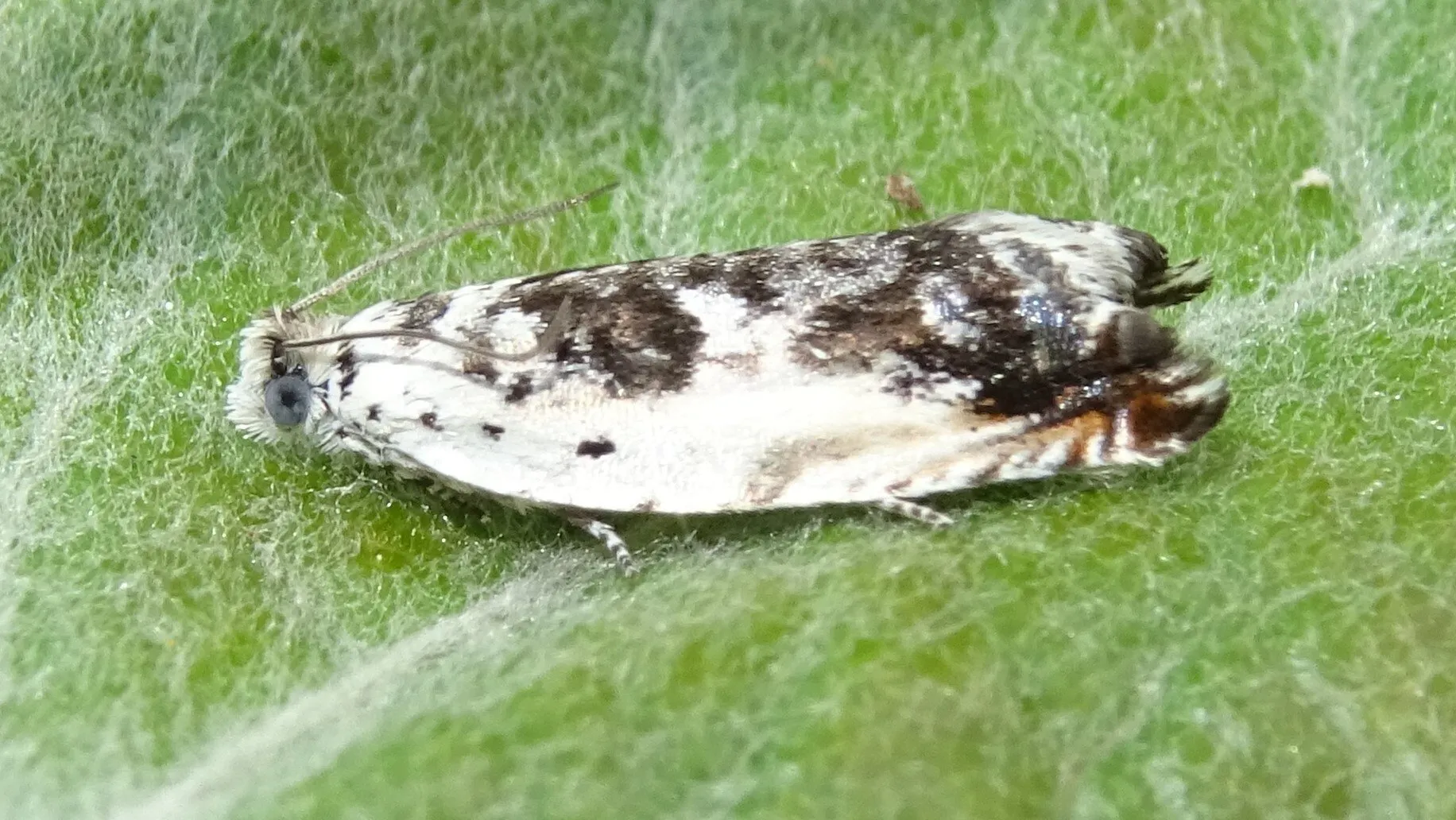
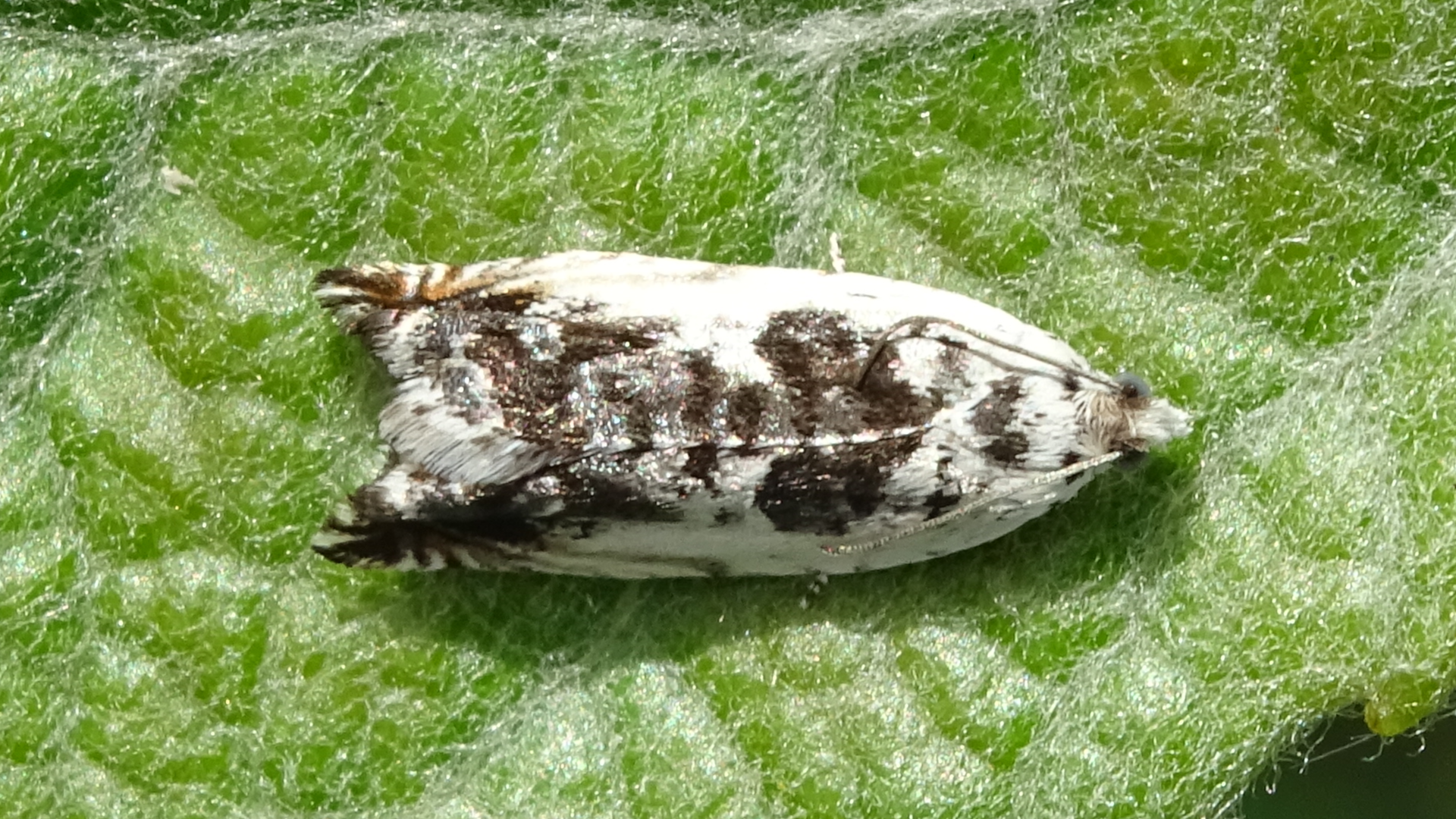
#
49.265
Hoary Tortrix Eucosma cana
Common species found from June until August in rough grassland where thistle and Black Knapweed grows. Formerly known as the 'Hoary Bell'.
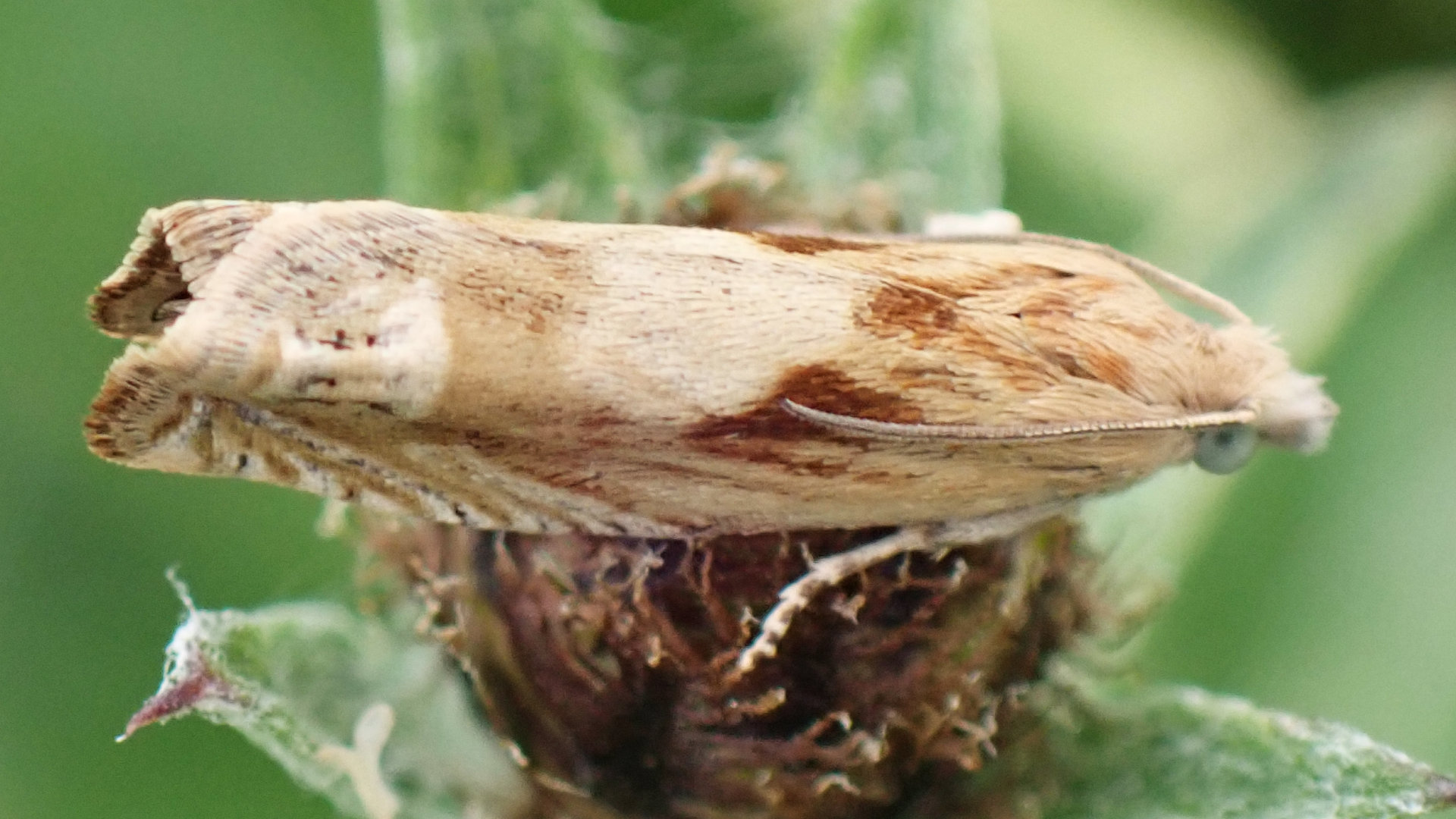
#
49.294
Bramble Shoot Moth Notocelia uddmanniana
This species was previously known as the 'Bramble shoot', but has recently had its name changed to the 'Bramble shoot moth'. It flies in June and July and is common in woodland and on hedgerows where bramble exists which is the larval foodplant. The large reddish-brown or chocolate-brown marking on the wings makes this a fairly easy species to identify.
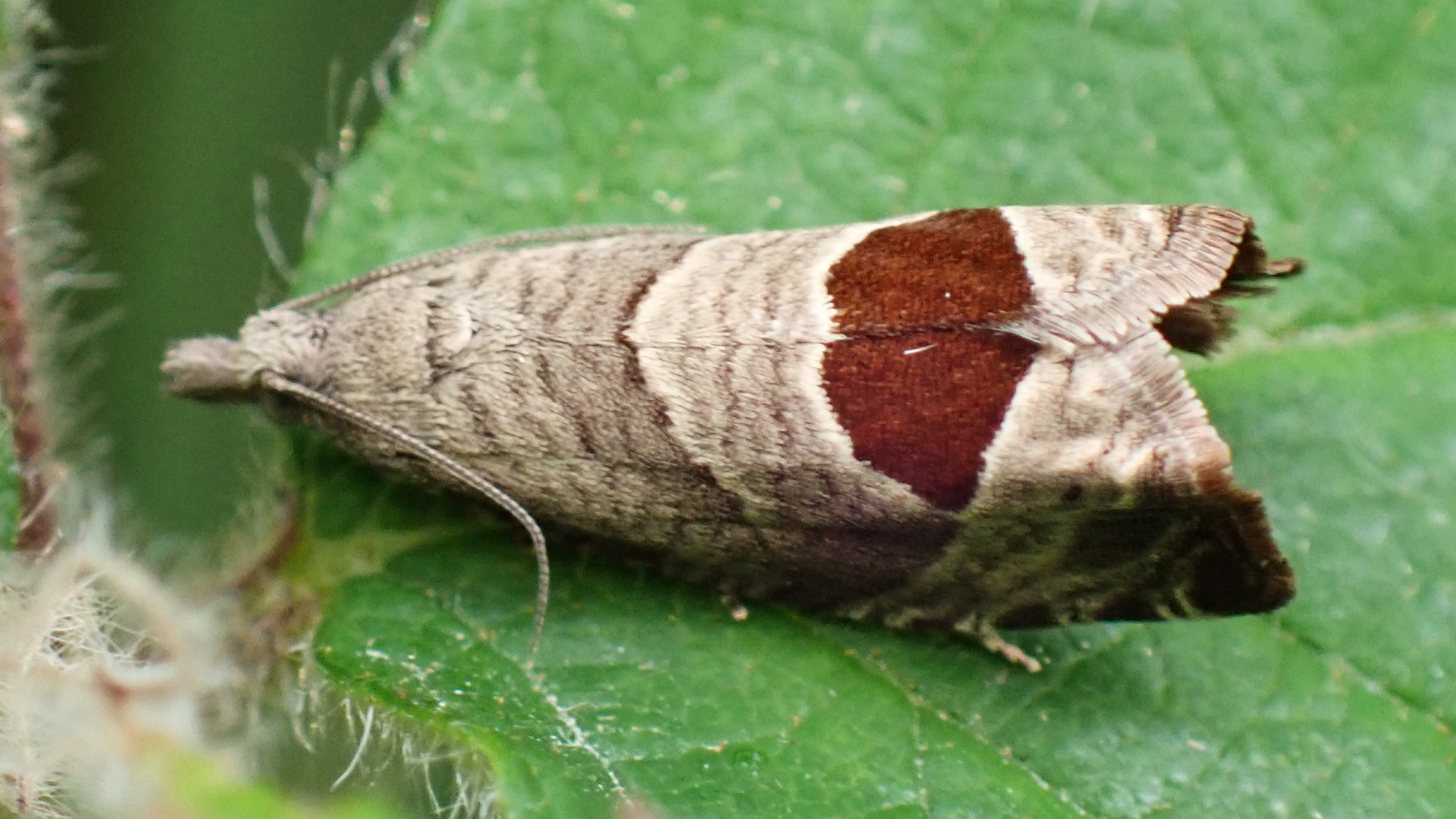
#
49.320
Orange-spot Daisy Moth* Dichrorampha alpinana
The website has listed this attractive specimen as Orange-spot Daisy Moth Dichrorampha alpinana, but it should be noted that Orange-spot Tansy Moth D. flavidorsana is very similar. The two species can only be accurately told apart by genitalia dissection so this record can only be regarded as plausible.
*This moth was flying in morning sunshine in a habitat dominated by oxeye daisies pointing to D. alpinana, but without dissection there is no way to be 100% sure.
#
49.338
Codling Moth Cydia pomonella
Common species found in woodland, gardens and orchards, especially where fruit trees are present. It is seen on the wing from June until September.
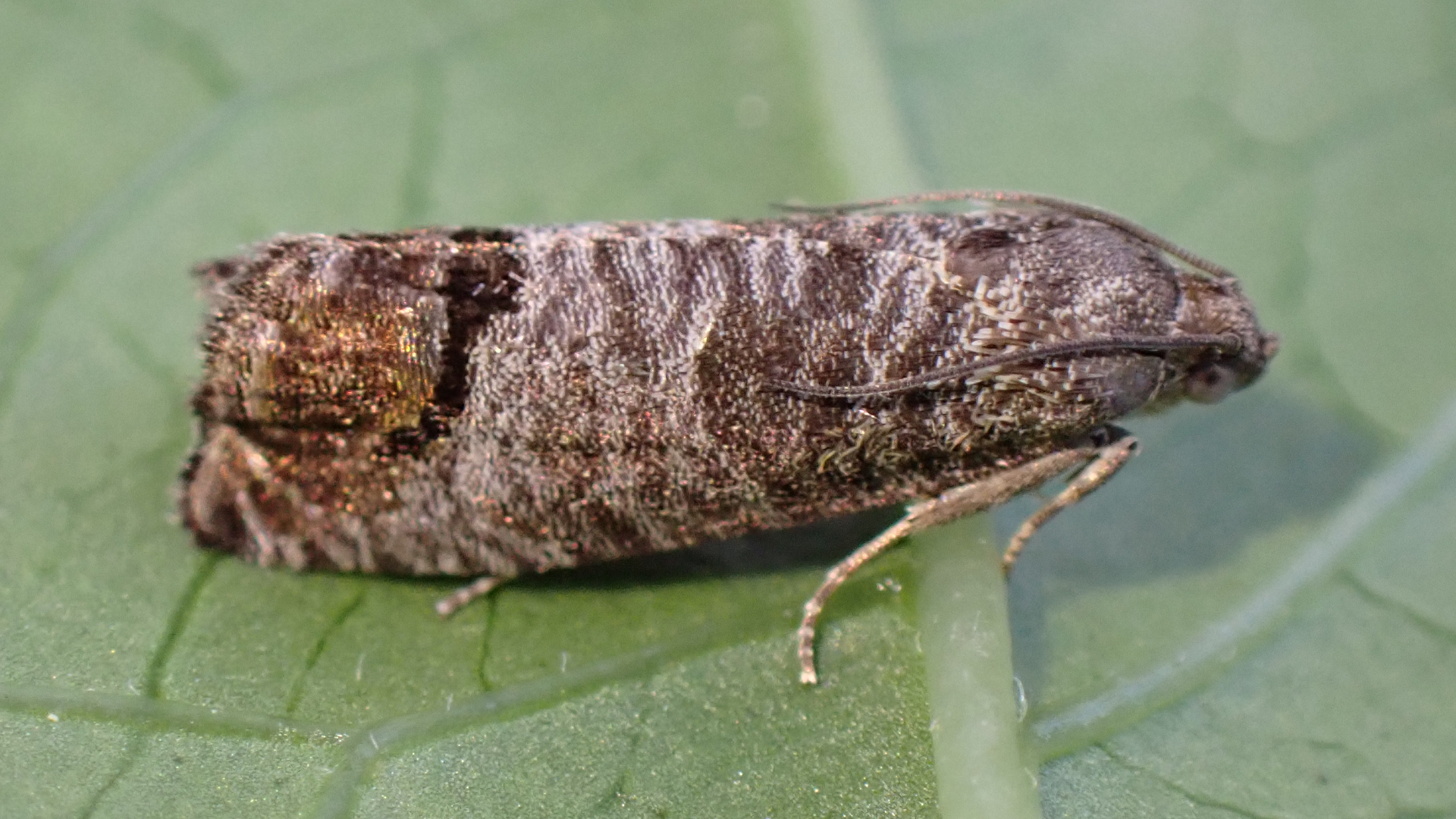
#
49.341
Marbled Piercer Cydia splendana
Common species found in woodland, heathland, scrub and other locations where the larval foodplants oak and sweet chestnut grow. The adults fly in July and August.
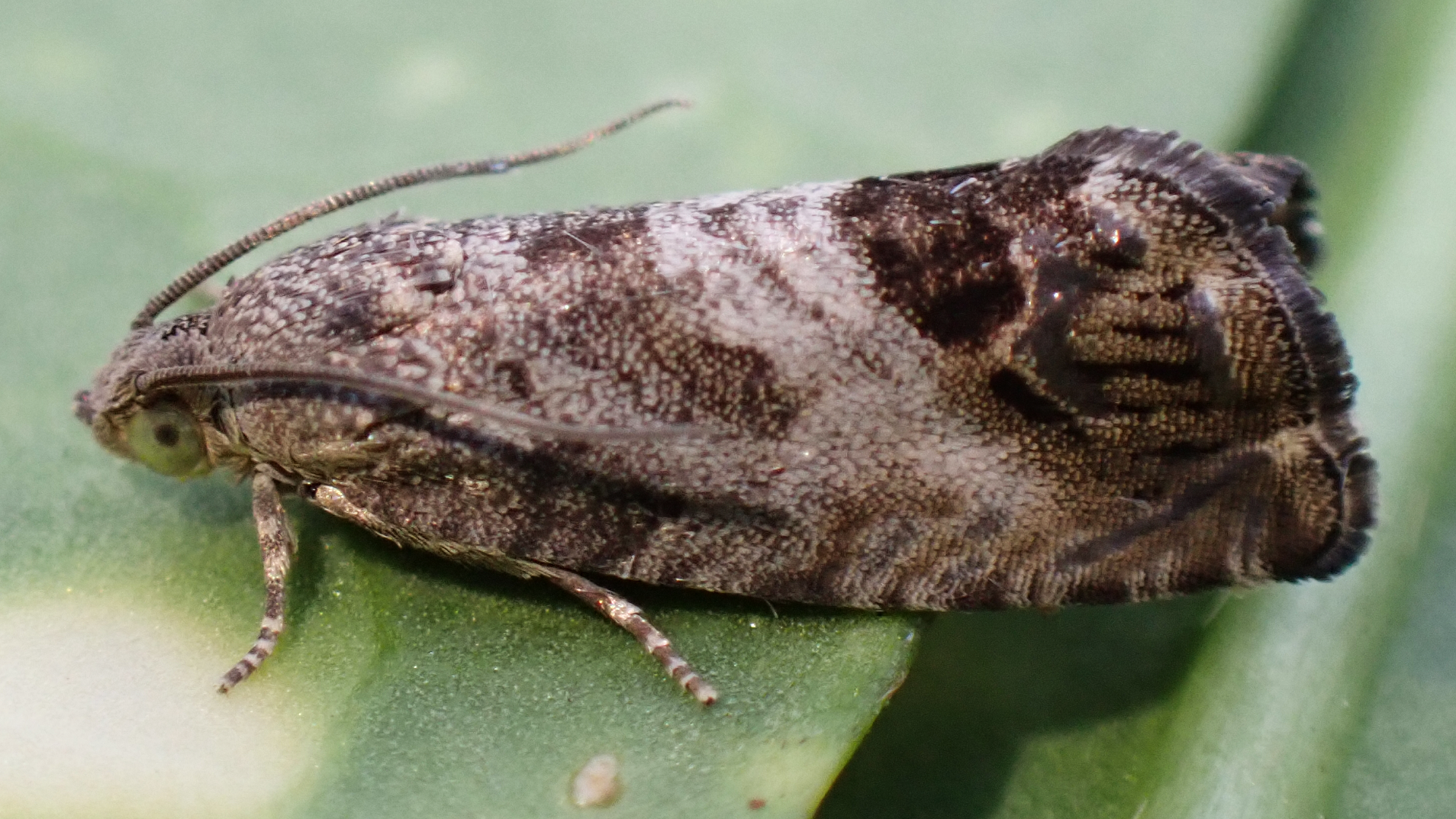
#
49.343
Rusty Acorn Piercer Cydia amplana
A migrant first recorded in Devon in 1990. Adults are usually seen in Britain during August. Its caterpillars are believed to feed on acorns and nuts, including Hazel, Walnut, Sweet Chestnut and Beech. Formerly known as 'Vagrant Piercer'.
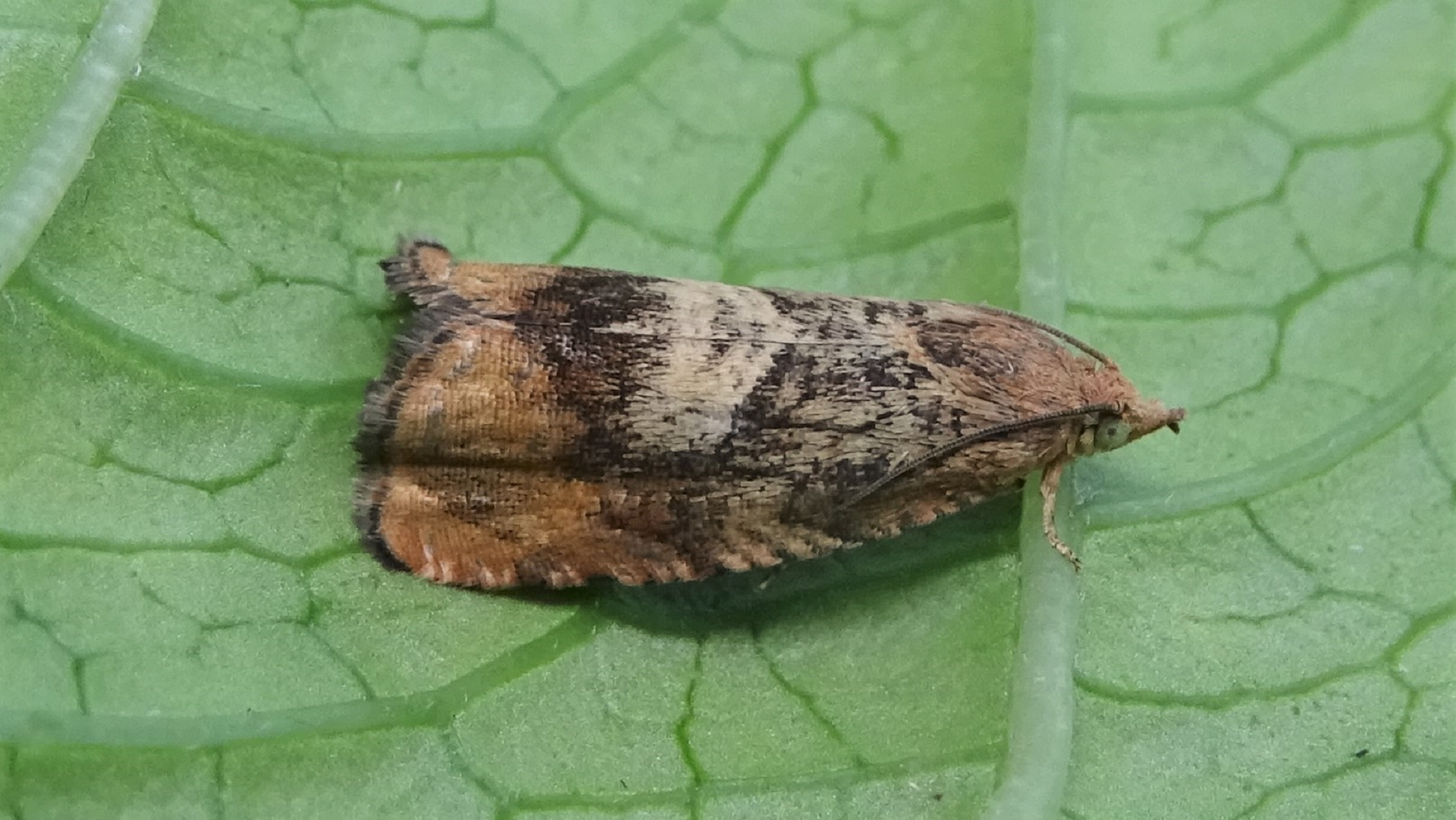
#
62.001
Bee Moth Aphomia sociella
A fairly common species that flies from May to August. Males are more brightly coloured and patterned than the females. The larvae feed on comb inside bee and wasp nests.
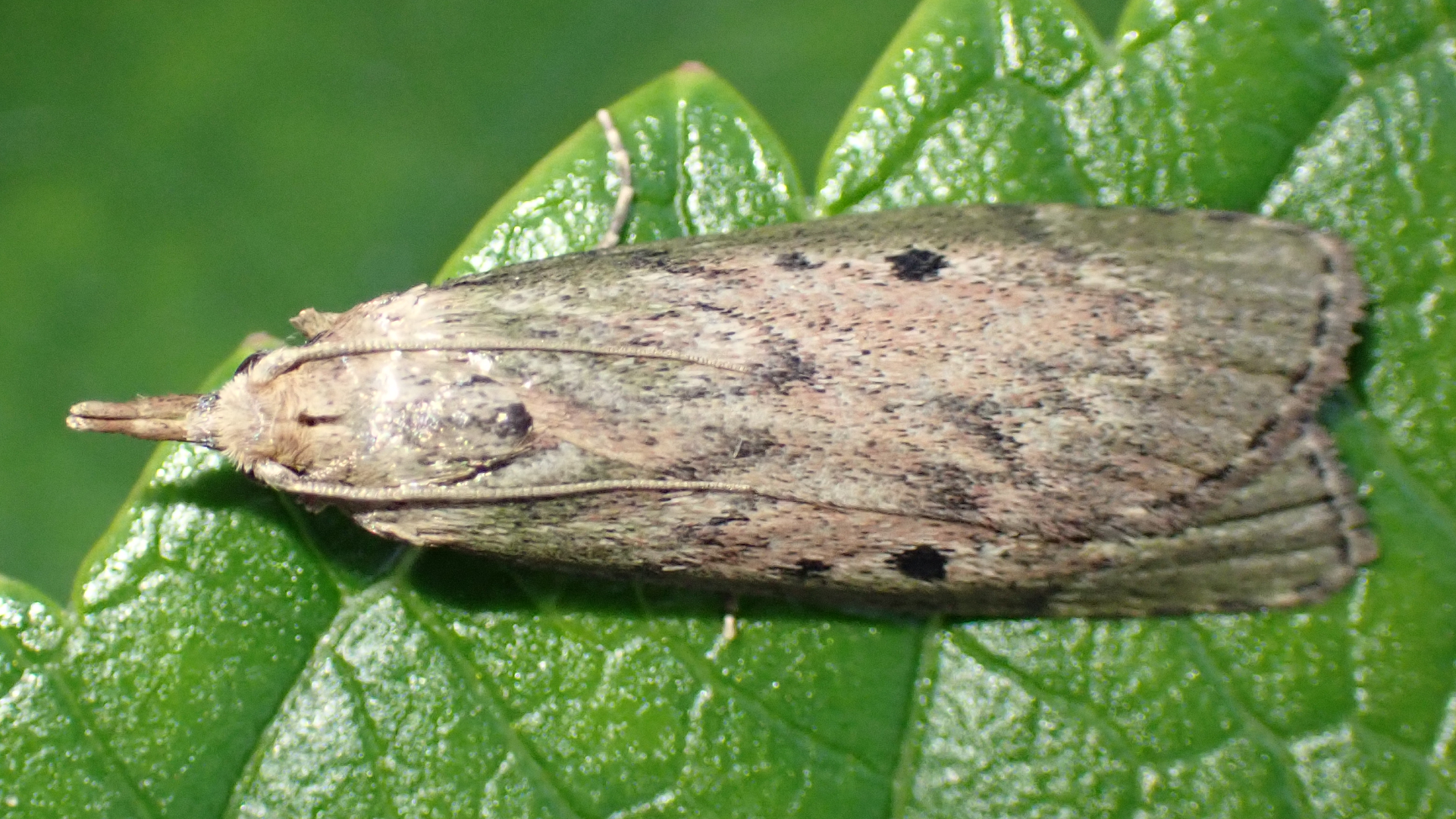
#
62.029
Oak Knot-horn Phycita roborella
Woodland species that flies in July and August. Oak is the larval foodplant. Previously known as the 'Dotted Oak Knot-horn'.
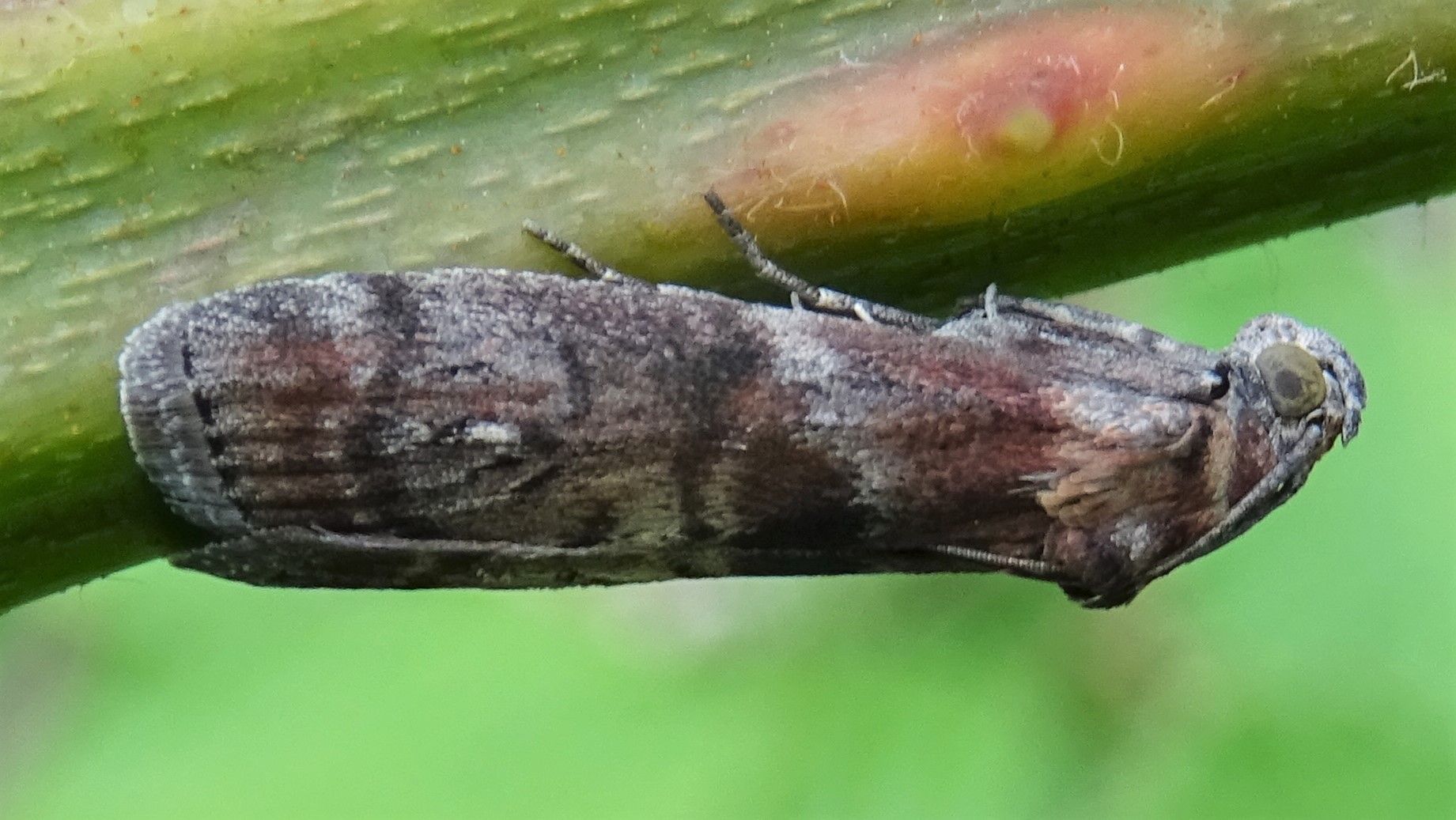
#
62.034
Beautiful Oak Knot-horn Acrobasis repandana
Woodland species that flies in July and August. Oak is the larval foodplant. Previously known as the 'Warted Knot-horn'.
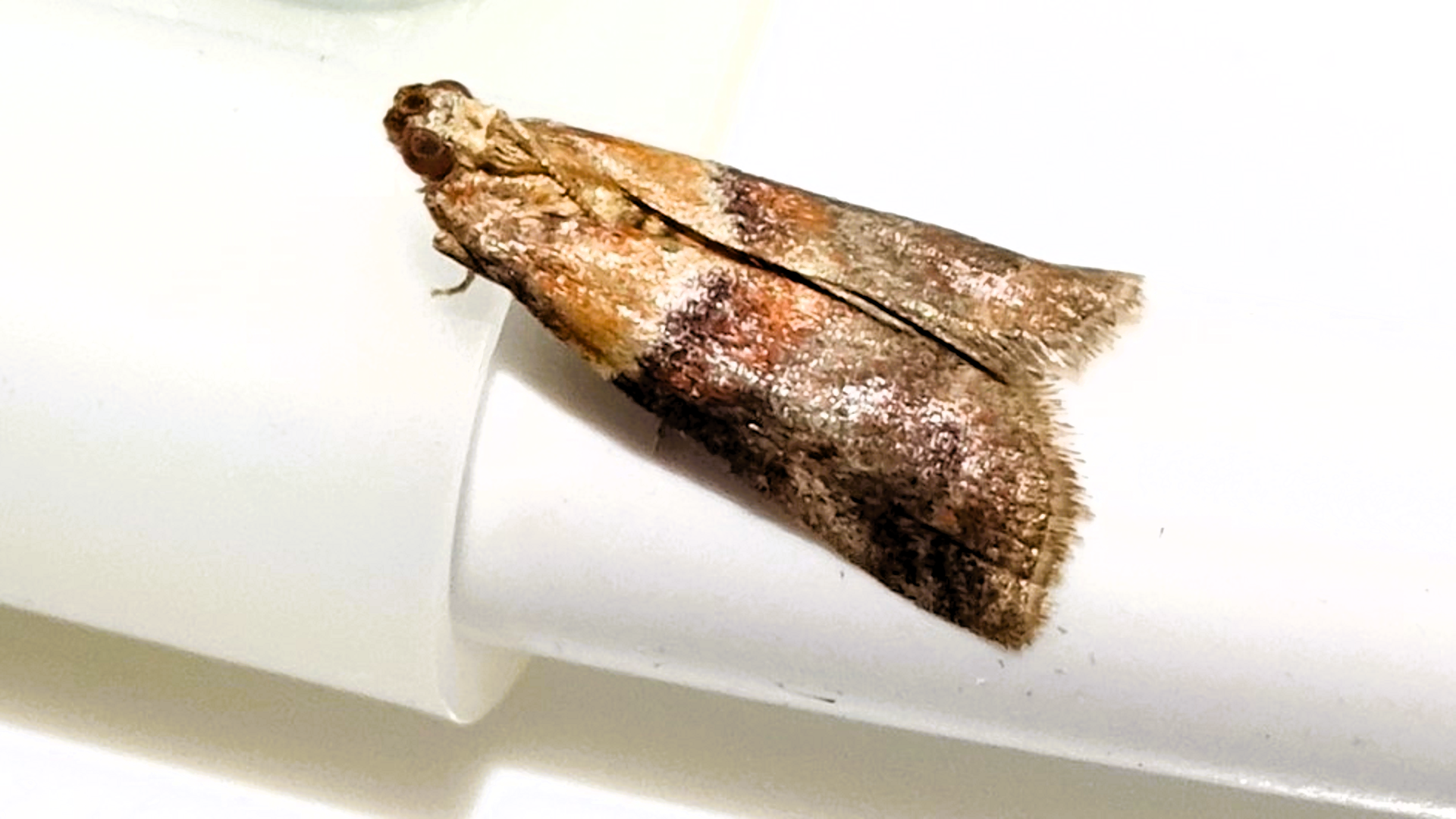
#
62.077
Rosy Tabby Endotricha flammealis
Found in gardens, heathland, woodland, grassland and scrub from June to August. There is sometimes a second brood during October if conditions are good. Its larvae feed on Greater Bird's-foot Trefoil.
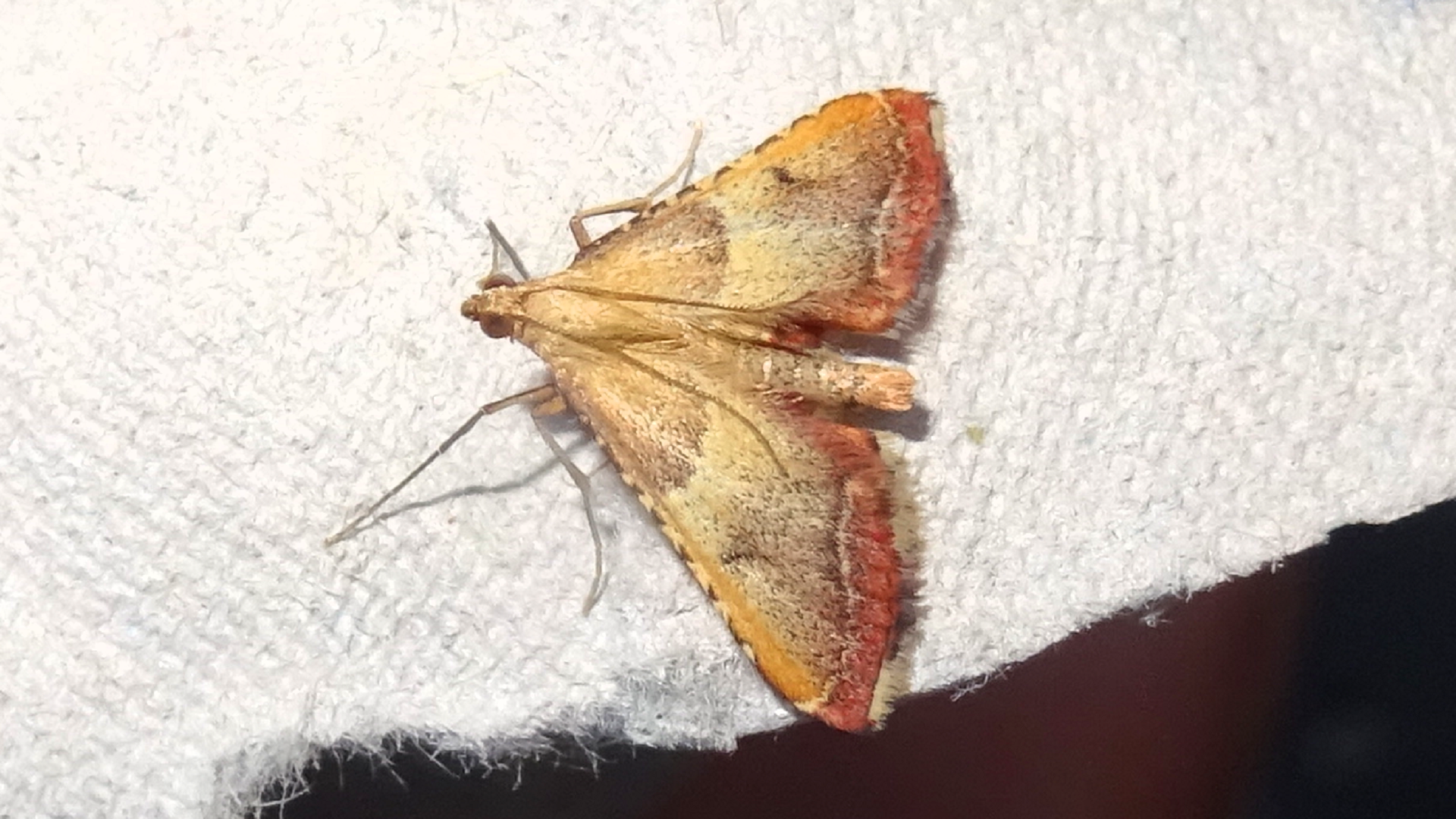
#
63.006
Mint Moth Pyrausta aurata
A tiny moth that flies during the day and night. It is often seen on Water Mint from May until August on sunny days. Also known as the 'Small Purple & Gold'.
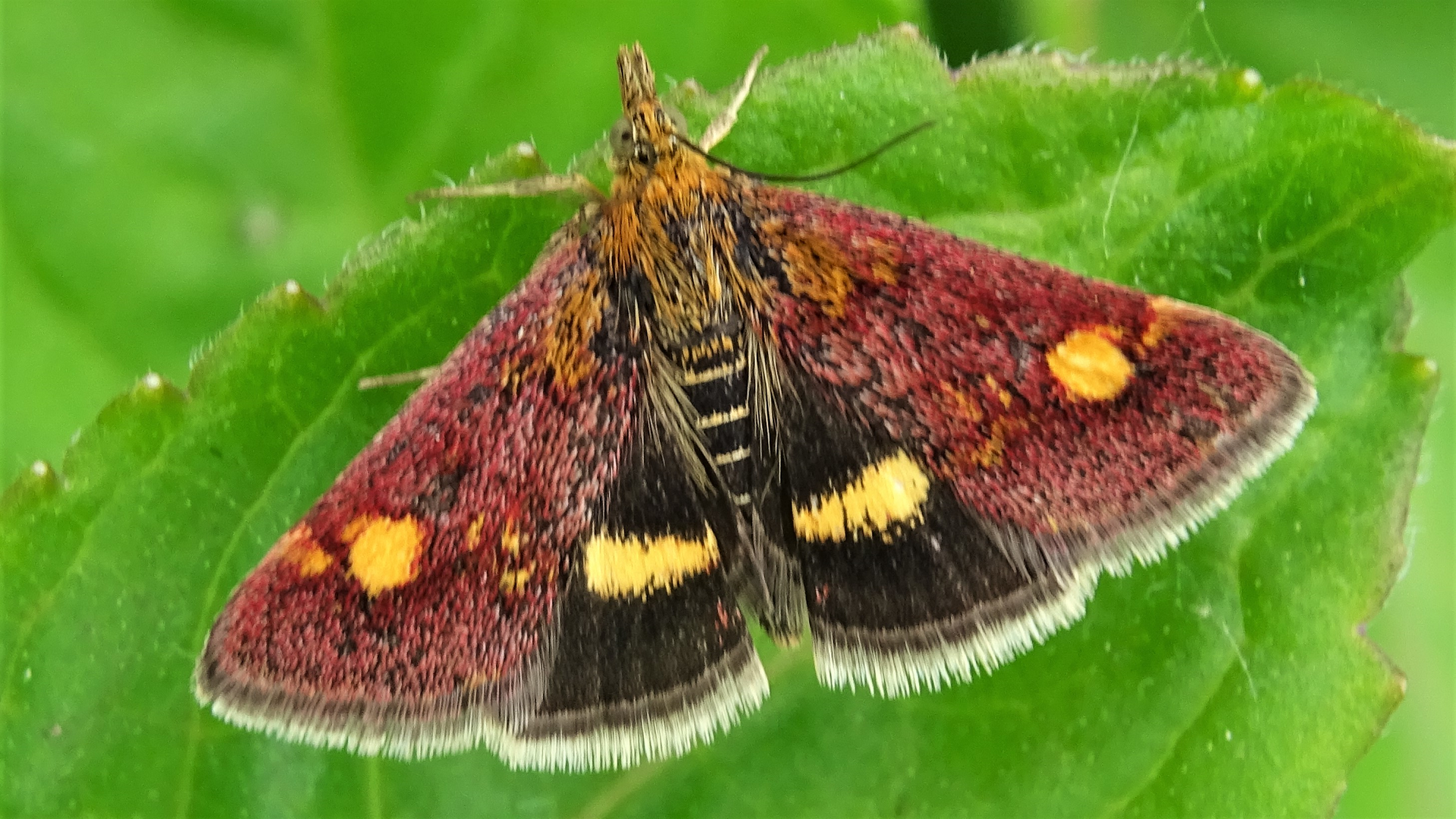
#
63.025
Small Magpie Anania hortulata
Flies in June and July. Larval foodplants include nettle, woundworts, horehounds, bindweeds.
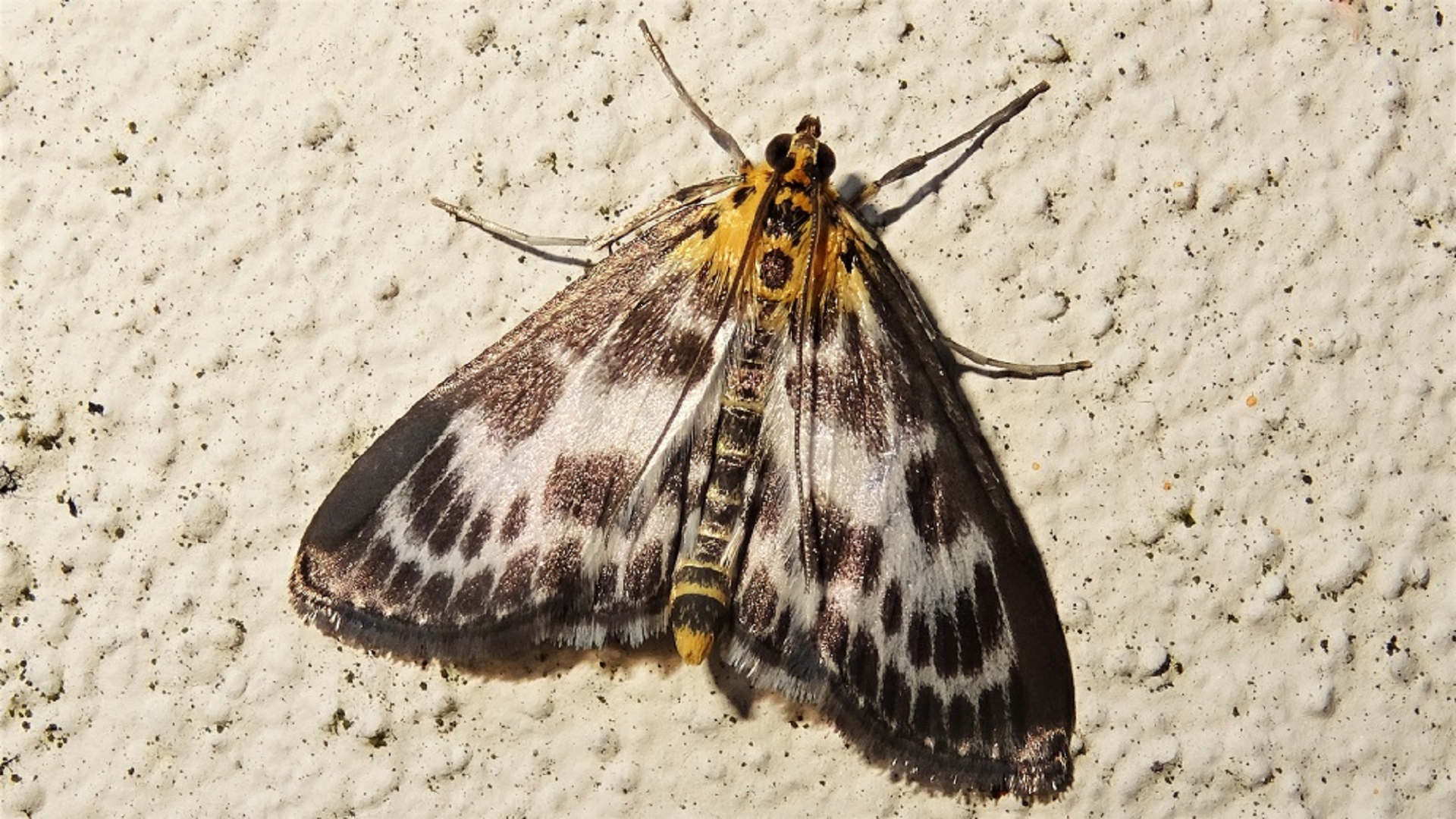
#
63.028
European Corn-borer Ostrinia nubilalis
A rarely recorded migrant prior to the 1930s, but has since spread and colonised some parts of London and the south-east. Females are normally larger and have lighter colouration than males. Mugwort is the larval foodplant.
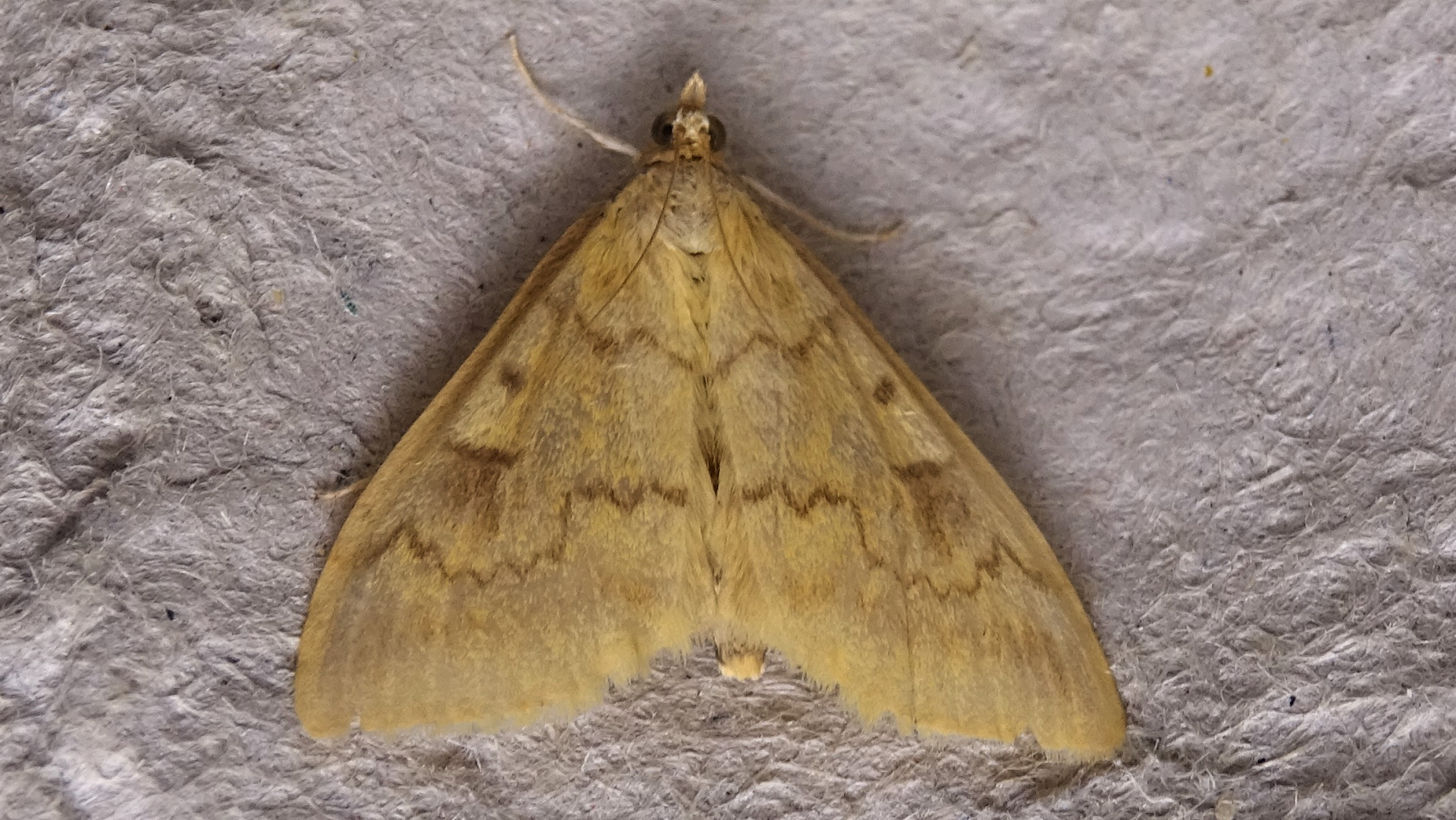
#
63.052
Rush Veneer Nomophila noctuella
Common and widespread immigrant that forms a very elongated and narrow shape when at rest. Its larvae feed on clover. This moth is usually seen from July until October.
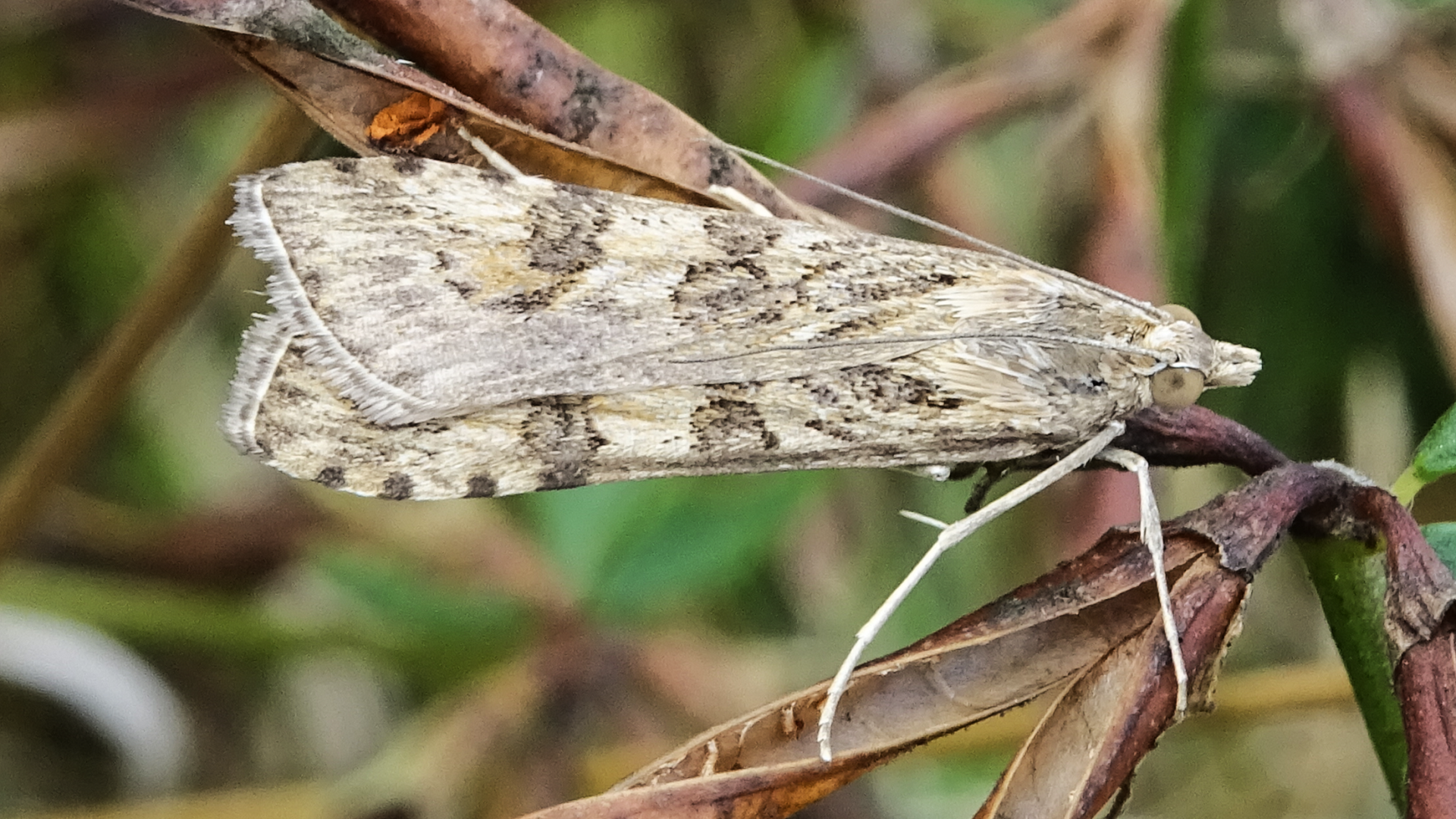
#
63.062
Indian Meal Moth Plodia interpunctella
Seen from June until September. The larvae feed on cereal, grain, dried fruit, and nuts.
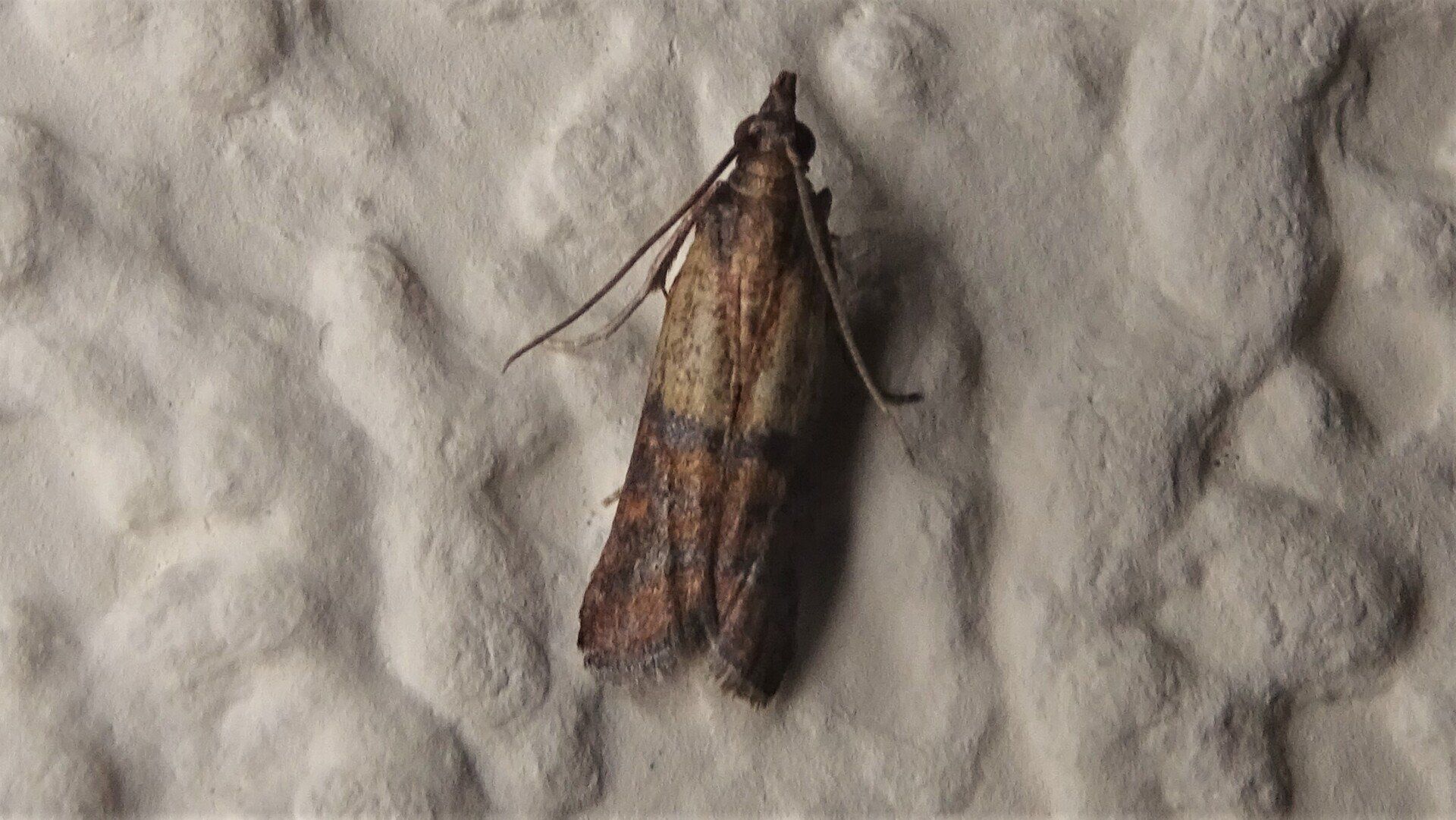
#
63.080
Garden Grass-moth Chrysoteuchia culmella
One of the commonest 'grass moths'. It has characteristic angled cross-lines and a golden fringe to forewing. Adults fly in June and July. The larvae feed on grass.
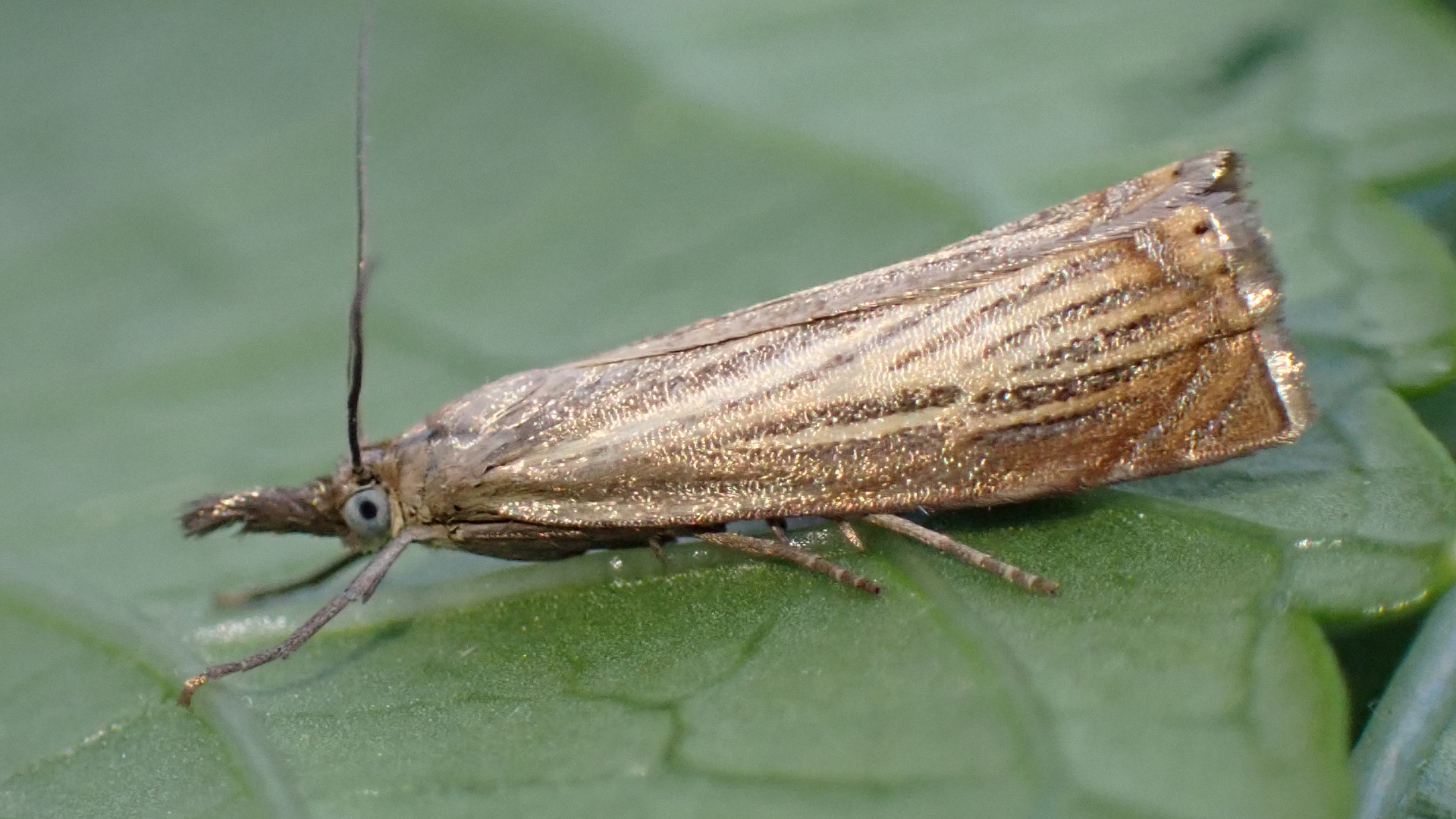
#
63.089
Common Grass Moth Agriphila tristella
Very common micro-moth that flies from June until September. Its larvae feed on various grasses. This species is easily disturbed when walking through long grass.
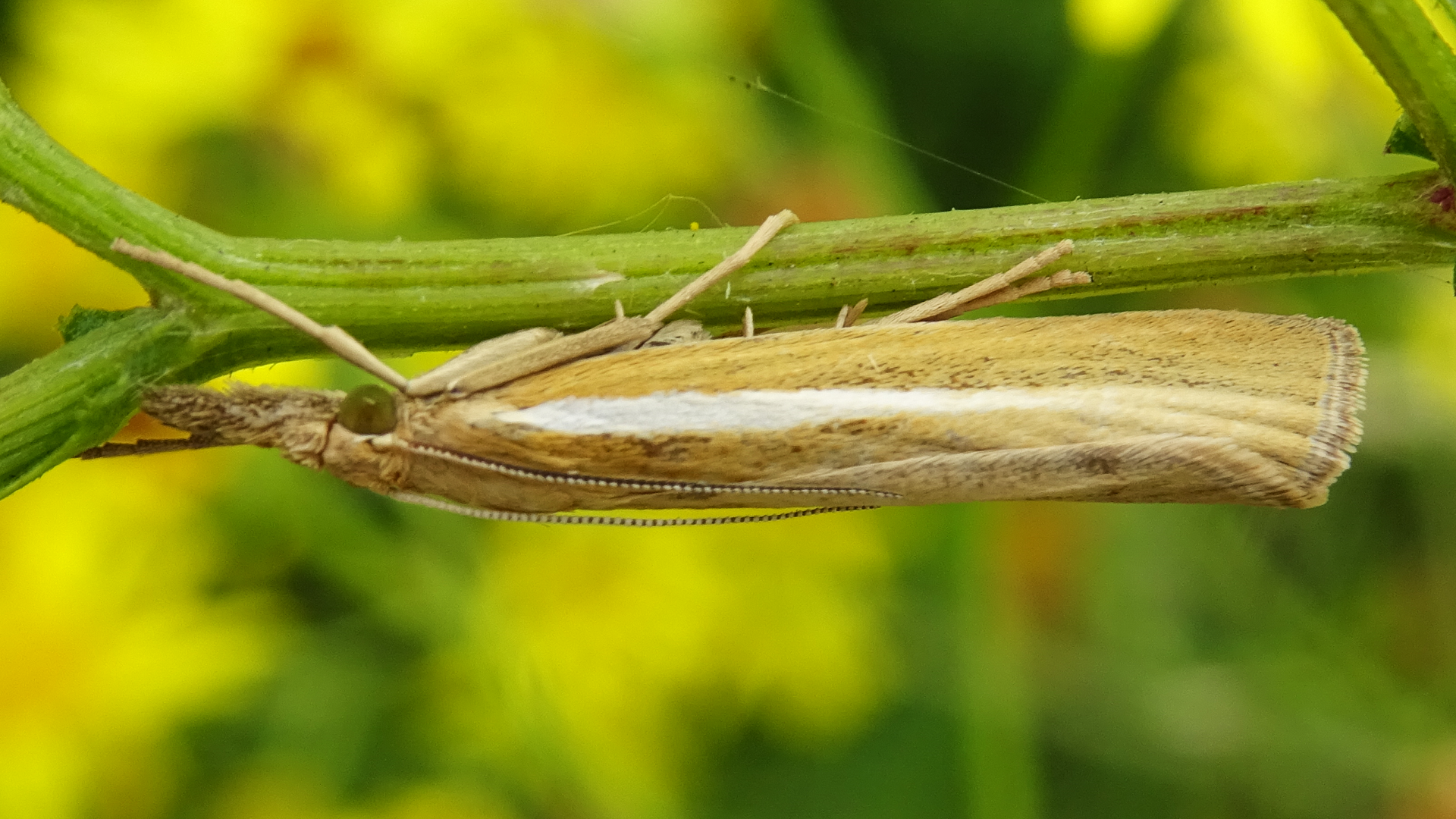
#
63.099
Pearl Grass-moth Catoptria pinella
Flies in July and August. Its larvae feed on grass.
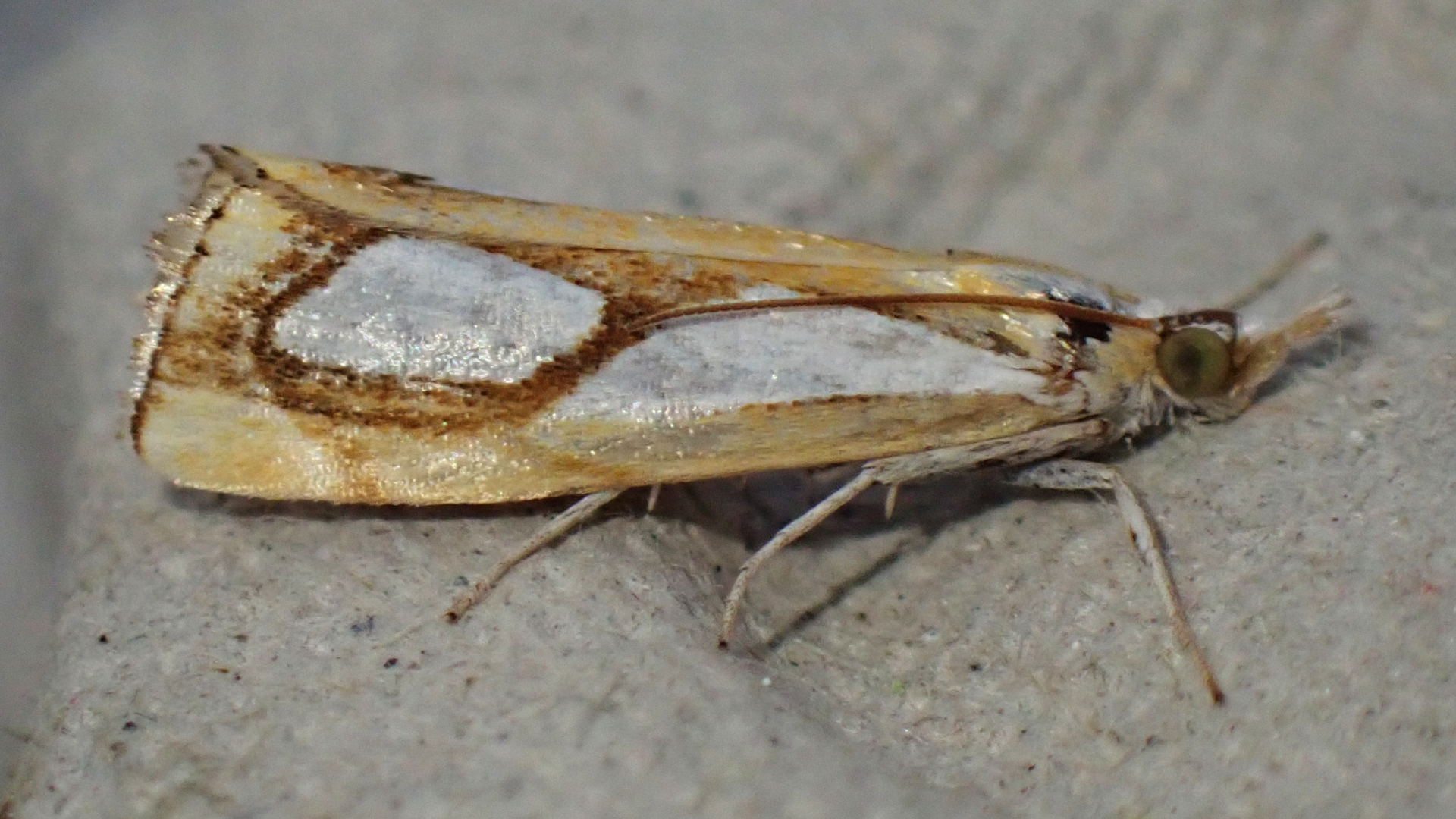
#
63.116
Small China-mark Cataclysta lemnata
On the wing from June until August. This Moth is often spotted when waterside vegetation gets disturbed. Males are slightly smaller and whiter than the females. This species feeds on duckweed.
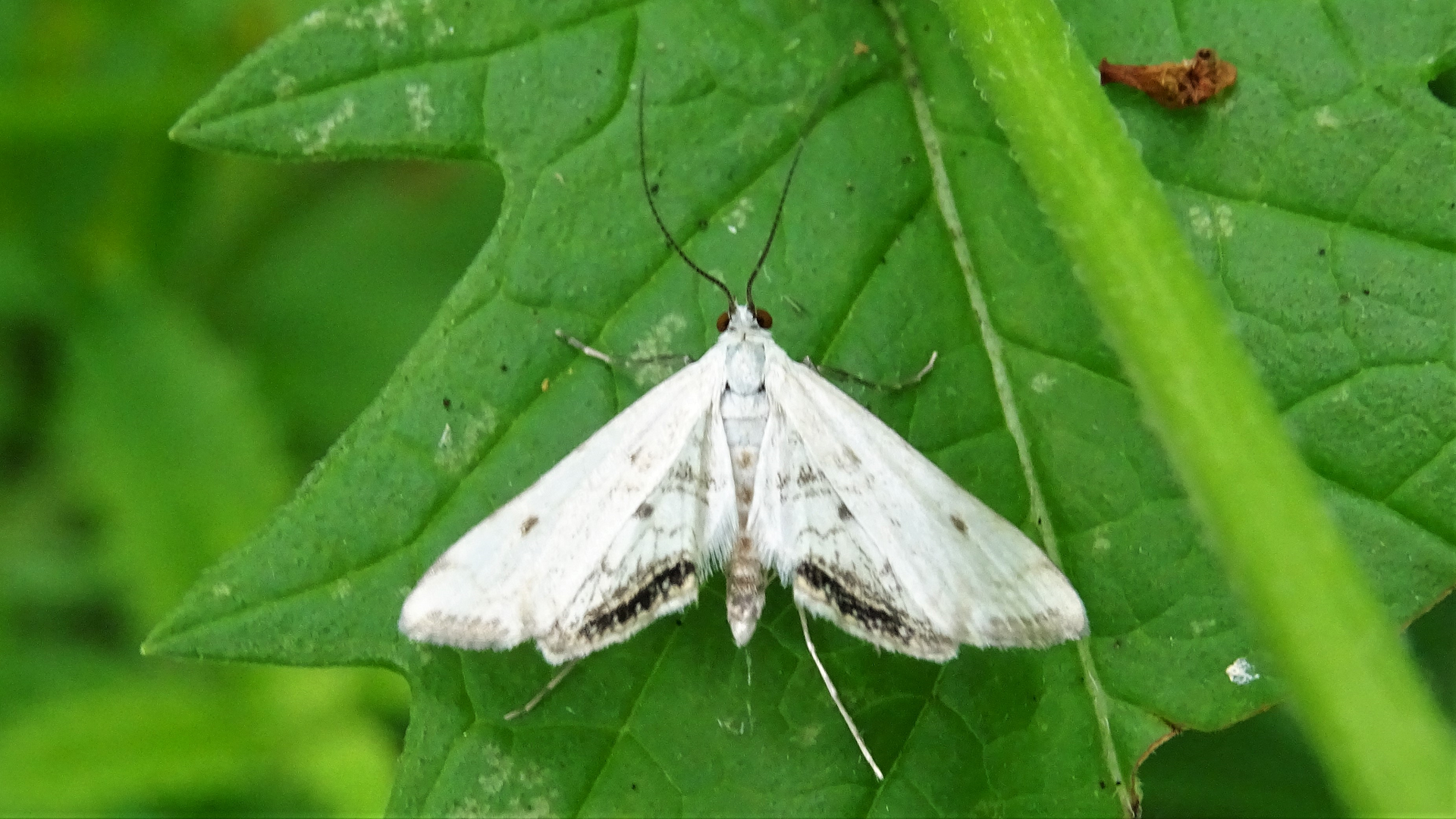
#
© hainaultforest.net. All rights reserved.


